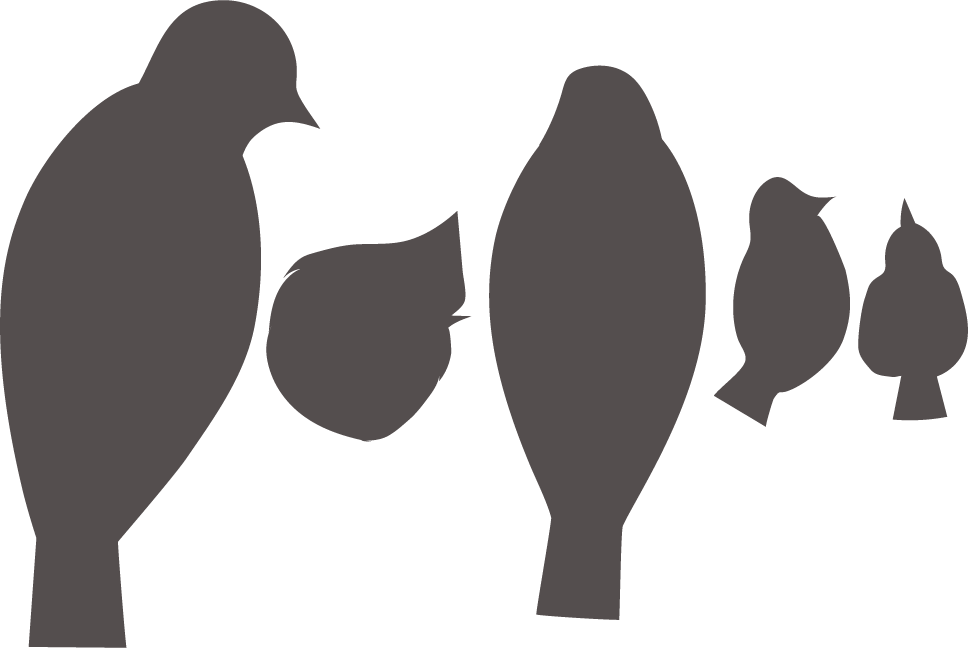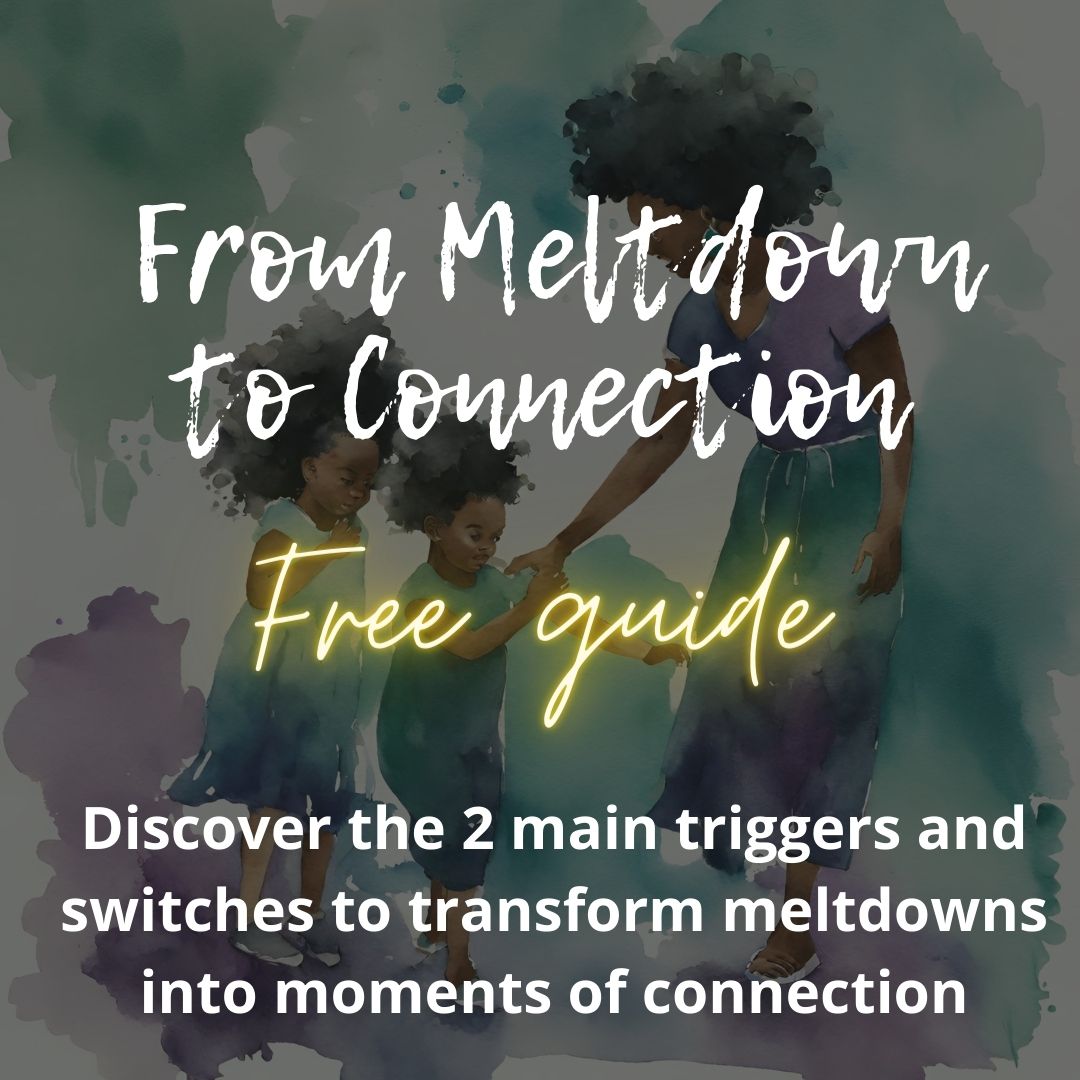Category / Parentale Confidence
0 Commentaires

Category / Parentale Confidence
0 Commentaires

Discover the 2 main triggers and 2 switches to transform meltdowns into moments of connection
Let's stop judging other parents, all parents, let's stop judging ourselves, or anyone else for that matter.
But no parent intentionally harms their children. (with very rare exceptions not discussed here).
When we judge, we are not helping anyone. It puts us in a negative state towards the other person, a state of closure and the other person in a negative state too if they are aware, and others are more aware of our judgements than we think. As much as people judge us less than we often think, we are extremely sensitive to the judgement of others and we will easily feel it with great force. And once we have judged someone, it is very difficult to go back and not judge them or undo our first impression, so that other person will have to go to great lengths to change our minds.

We all have different upbringings, different circumstances, different personal resources, different traumas, different children; who need different kinds of parents.
And all this changes as life changes. We don't know what others are going through and who or what might help them along the way.
Judging is applying our reality to the other person. Analysing their situation with our glasses, with our life experience, with the resources we have access to.

We have a natural tendency to do this, every human being is like that, it simplifies the analysis of situations. But the older we get, the easier it is to judge. Children judge very little, if at all, they observe with curiosity and it is the adult's gaze that will tell them if something is dangerous or not. It is therefore the adult's judgement that the child will integrate and gradually he will judge more and more easily if a given situation is dangerous or not.
It's the same with humans and obviously it has a positive impact in some aspects. Children need to learn to analyse situations that present a danger. The danger, however, is often to apply the judgement without the presence of a danger. And this is what we do so easily in our society and is the source of so many of today's problems in society.

Don't think I'm perfect, I used to judge a lot and still do (although now I notice and rectify it most of the time). But I practiced non-judgment daily when I was a social worker and it has no choice but to carry over into every other area of my life.
An example? I used to judge parents who put their child on a "leash" you know those little backpacks? It's a common judgment of many people: Come on, it's not a dog, you don't put it on a leash! Just watch him and teach him to stay close to us.

It is never that simple! Now not only do I not judge but I have suggested it to a few parents in my work, as their child needed it to be safe for reasons that have nothing to do with the parents' skills or motivation to raise and care for their children.
But to stop judging, when it is such an ingrained habit in our societies, is not so simple.
So, although it's not magic, I suggest 2 steps to get started. When we catch ourselves judging, let's try to reframe the situation to nuance our judgement and question it:
Yes, because judgement starts from a discomfort, all the time. We feel uncomfortable because what the other person does is different from what we would do. Because the other is different from us.
If we want to ask ourselves why we have a discomfort, to go and look for the source, it's even better because it allows us to go further, to really question which of our values the situation is in opposition with. It allows us both to clarify our own values and to realise that the other's values might be different. Or even that the values are similar but expressed differently.
But asking why is not always necessary either, sometimes the situation does not lend itself to it and simply realising that we are experiencing a malaise can be enough to put ourselves in a position of questioning our judgement.

Then, let's repeat: "I don't know what their situation is, I don't know what their children need. I don't know what resources they have. And then let go.
Easier said than done, but with practice, like everything else, it gets easier. At the beginning we only half believe it and what can help in these moments is to try to explain. To try to excuse the person from our point of view. To try to imagine a situation that the person is in that could make them act that way.
Let's take the example of the child's "leash" again. In what situations might children need such a leash?
Children on the autism spectrum who are not aware of the danger
- Children with ADHD with very pronounced impulsivity
- A parent walking with 3 very young children of which only one is in a stroller (or not at all), think of triplets of 3 years old...
A parent with several children in a large crowd in a place unknown to the children
Just 4 small examples, I let you try to find others...


Doing these exercises for all the situations we find ourselves judging allows us to reframe our thinking and, with repetition, we will find ourselves trying to find explanations for all the surprising situations we find ourselves in. We will then have stopped judging. Does this mean that we will never judge again? No, sometimes we will be caught short, tired, really conflicted about values.
The idea is not to say that judging is bad, no, judging is essential. The idea is not to judge without knowing and to always give the benefit of the doubt to the other.
Do you want to reflect on your family values and goals?

Stay Calm: Realistic Self Care for Parents of Emotionally Intense Kids
When you have "emotionally intense kids" it can be extra hard to take care of yourself...and you need it even more as it's by staying calm yourself that you'll be able to help your child manage their emotions

3 steps to include realistic self care in your busy parenting routine
Session expired
Please log in again. The login page will open in a new tab. After logging in you can close it and return to this page.